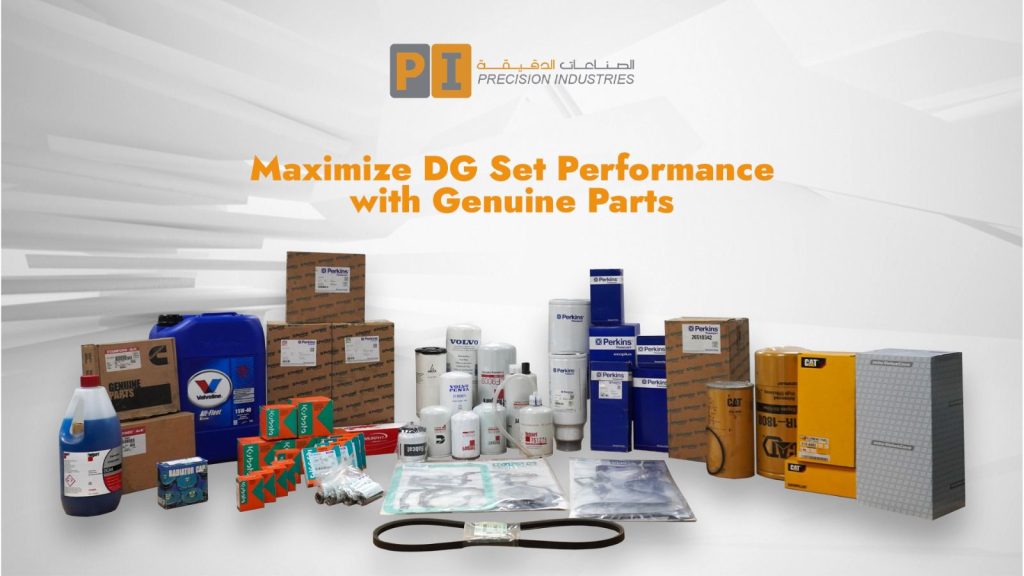Troubleshooting Common Issues with Diesel Generator Parts
-
By admin
-
July 9, 2024
- 0 Comment

When your diesel generator shows signs of malfunction or won’t start, troubleshooting is essential to identify the cause and resolve the issue. Diesel generators, like any complex machinery, can experience problems stemming from various parts, and a systematic approach is necessary to keep them running smoothly.
Common Diesel Generator Problems
1. Engine Won’t Start
Whether your generator is new or has been in use for some time, a non-starting engine is a frequent issue. Causes can include:
- Low oil levels
- Battery failure
- Depleted fuel
- Issues with the fuel injection system
- Clogged air intake
- Circuit breaker problems
2. Overheating
Overheating can damage several generator components, including the alternator, leading to melted bearings, warped rotors, or crushed head gaskets. Regular thermostat and radiator checks can help prevent this problem.
3. Fuel System Issues
Clogged fuel filters, air in the fuel system, or obstructions in the fuel line can cause major disruptions. Regular maintenance, including filter changes and using high-quality fuel, is key to preventing fuel system issues.
4. Electrical Failures
Electrical system malfunctions, such as problems with the circuit breaker or loose wiring, are also common. Battery issues can further exacerbate electrical problems.
Diagnostic Steps for Diesel Generators
1. Visual Inspection
A thorough visual inspection can reveal many common generator problems. Key areas to inspect include:
- Cracks or corrosion
- Leaks in oil, coolant, or fuel systems
- Loose electrical connections
- Airflow obstructions
- Dirt and debris accumulation
2. Checking Fuel Levels
If your generator won’t start, ensure the fuel sensors are functioning correctly, and check for leaks or an empty fuel tank.
3. Examining Electrical Connections
Loose or malfunctioning electrical connections can cause the generator to fail to start and pose a safety hazard. Address any issues found during inspection immediately.
4. Using Diagnostic Tools
Tools like load bank testers, clamp-on ammeters, and multimeters are essential for troubleshooting diesel generator issues. For example, a multimeter can measure voltage levels at battery terminals and alternators.
Solutions and Fixes
1. Engine Troubleshooting Tips
Common engine-related issues, like clogged air filters, restrict airflow and slow down combustion. Regularly inspect and replace air filters as necessary. Additionally, check the condition of glow plugs, and replace them if worn out.
2. Resolving Overheating Issues
Ensure there is adequate clearance around the generator (about 1.5 to 2 meters), remove debris, and maintain proper water coolant and oil levels. Replace old filters and avoid overloading the generator.
3. Fixing Fuel System Problems
Regularly refill the fuel tank and monitor the fuel gauge to ensure it’s functioning correctly. Use high-quality fuel to avoid blockages and follow the manufacturer’s guidelines for removing air from the fuel system.
4. Repairing Electrical Components
Common faulty electrical components include the starting motor, alternator, voltage regulator, and drive belt. Based on the diagnosis, repair or replace these parts as needed.
Preventive Maintenance Tips
1. Regular Inspections
Perform regular inspections, which can range from daily to annual, depending on operational conditions and manufacturer recommendations. Look for corrosion, leaks, and loose connections.
2. Load Testing
Conduct load testing at least annually, especially on larger generators, to ensure they perform optimally under expected operating conditions.
3. Fuel System Maintenance
To extend the life of your generator, use quality fuel and fuel stabilizers. This helps prevent fuel system issues like injector blockages.
4. Electrical System Upkeep
Maintain the electrical components, including the battery, voltage regulator, and wiring, to prevent failures and extend the generator’s life.
Conclusion
Owning a diesel generator gives you peace of mind, knowing it will run when you need it most. To ensure it continues to perform reliably, stay ahead of potential issues by recognizing and addressing common problems. Always use OEM parts or approved replacements for the best results.
Related FAQs
What are common diesel generator problems?
Common problems include electrical failures, fuel system issues, engine failure to start, and overheating.How can I troubleshoot a diesel generator that won’t start?
Check the battery, fuel levels, and inspect for overheating.What should I do if my diesel generator is overheating?
Clear any blockages, maintain proper coolant and oil levels, and avoid overloading the generator.How often should I perform maintenance on my diesel generator?
Perform daily pre-start checks and operational checks bi-weekly. Load testing should be conducted monthly if the generator has not been on load.What tools are needed for diesel generator diagnostics?
Common tools include load bank testers, clamp-on ammeters, and multimeters.

